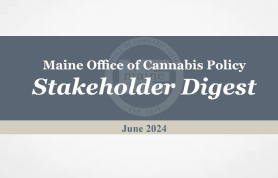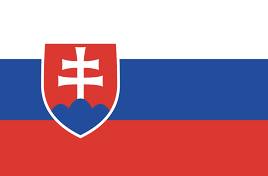Mass comment on the bill amending Act no. 139/1998 Coll. on narcotics, psychotropic substances and preparations. Legislative process no. LP/2024/114
The Ministry of Health of the Slovak Republic has submitted a bill which should prohibit the cultivation of hemp for the purpose of producing CBD extracts. In practice, this would prevent the production of natural extracts in the territory of the Slovak Republic directly from cannabis and only isolates of individual cannabinoids could be produced. This bill would therefore mean the end of the natural and Slovak CBD.
To Art. 1 – to § 15 par. 4
The bill is intended to introduce into practice a ban on the cultivation of cannabis plants for the production of extracts, which could also contain legally regulated substances. As we consider such regulation to be absurd and unsubstantiated (the specific part of the explanatory memorandum does not rely on any relevant facts) with this mass comment we request the complete deletion of paragraph 4 in § 15 (point 16 of the submitted bill) or explicit definition in the proposed § 15 par. 4 that this prohibition will not apply to varieties of hemp from the Common Catalog of Varieties. Act no. 139/1998 Coll. whereas it mentions a hemp with several attributes, such as hemp for industrial purposes or varieties of hemp in the Common Catalog of Varieties or varieties of hemp listed in a special regulation, but the definition of „technical hemp “ is not known by law. The presumption therefore arises that in the draft law § 15 par.4 was to apply to all varieties of hemp, as there is no explicit exception that this provision should not apply to the ban on the cultivation of varieties of hemp under special regulation t. j. varieties, which are listed in the Common Catalog of Varieties approved by the European Union.
In addition to the above, we also submit a bulk comment for the following reasons:
-
Farmers growing the legal varieties Cannabis sativa L., which are approved by the European Union and included in the Common Catalog of Varieties of Agricultural Plant Species, with a focus on the production of full-fledged extracts (referred to as CBD extracts) from flowers, they would not be able to continue to carry out economic activity, endangering not only their families but also the families of their employees, as there would be mass redundancies, and at the same time a loss of revenue to the state budget.
- Preferring only isolate forms, whether or not insulated from plant material, can damage public health as many of these forms are, difference from in kind [1], harmful to varying degrees [2], from liver damage [3] to the immune system to eventual death [4]. Which would also be reflected in the necessary increase in health care expenditures from the state budget.
- A large proportion of growers would only move their activities to the surrounding countries, from which they would then import their products back to the Slovak Republic (thus filling the treasuries of the surrounding countries), to their points of sale. And if the competent authorities of the Slovak Republic subsequently restricted whether they punished the import and sale of these products, they would have to pay producers millions of euros in compensation, due to violations of the law, namely Art. 34 and 36 ZFEU (see the ruling of the Court of Justice of the EU in Case C-663/18), which would lead to reimbursement from the state budget.
- There may have been a contradiction with international law, as the Slovak Republic is bound by the United Nations Single Convention on Narcotic Drugs of 1961, which is adopted by us as Decree of the Minister of Foreign Affairs no. 47/1965 Coll. The contradiction could arise in particular with Article 28 of the 1961 United Nations Single Convention on Narcotic Drugs, which would create a similar situation as when the Slovak Republic, as the only member country of the European Union without relevant background and without support in UN conventions, had a CBD on the list of narcotic drugs and psychotropic substances, specifically in Annex no. 1 in II. group among psychotropic substances despite the fact, that the CBD did not fall among the psychotropic substances within the meaning of the conventions and the restriction on the cultivation of hemp varieties from the Common Variety Catalog could give rise to an action against the Slovak Republic.
No.i už ide o konopu pre technické, potravinárske alebo medicínske účely, sme svedkami zjednodušovania zákonov a prístupu k všetkým jej oblastiam využitia, nielen v Európe ale aj vo svete. Nemecko od 1.4. 2024 legalizuje konopu s vysokým obsahom THC na rekreačné účely a zjednodušuje aj jej používanie na liečebné účely, čím sa stane „Európskou Kaliforniou“. Česká republika pracuje na podobnom návrhu, ktorý mal platiť už od 1.1. 2024 no jeho schválenie bolo posunuté ku koncu tohto roka. V Európskej únii sa môže konopa používať na liečebné účely už v 20 krajinách (no v 2 je jej použitie ťažko dostupné). V Poľsku a v Nemecku je konopa, rozhodnutím najvyššieho súdu, uznaná ako „stará/klasická“ potravina, na základe historických písomností a archeologických dôkazov (najstarší dôkaz preukazujúci že, konopa bola základnou zložkou ľudskej stravy je približne z r. 10 000 p.n.l., a podobné, aj keď o trocha mladšie dôkazy sa nachádzajú po celom svete).
V roku 2018 Európsky parlament vydal uznesenie č. 2018/2775 (RSP) o používaní konope na liečebné účely. V tomto uznesení, sa okrem iného konštatovalo že, je potrebné aby členské štáty, ak nemajú, vytvorili pre svojich občanov prístup ku konope pre liečebné účely. A taktiež sa naliehalo na zadefinovanie liečebnej konope a vzdelávaniu lekárov v tejto oblasti. Slovenskej republike bolo na tento účel poskytnutých 5 miliónov eur. Ministerstvo zdravotníctva Slovenskej republiky vtedy vytvorilo pracovnú skupinu, ktorá mala vytvoriť osnovy pre vzdelávanie lekárov a zmenu legislatívy, no táto skupina bola počas tzv. úradníckej vlády rozpustená. Za daný čas Ministerstvo zdravotníctva nespravilo ani jedno vzdelávanie a nepredložilo ani jeden návrh zákona ktorý by umožnil pacientom prístup ku konopnej liečbe a to napriek uzneseniu Európskeho parlamentu a Charty práv pacienta. Charta práv pacienta jednoznačne konštatuje, že má byť poskytnutý prístup k takému štandardu zdravotnej starostlivosti, ktorý je v súlade so súčasným stavom lekárskej vedy. A od 1.7. 2024 bude platiť v celej Európskej únii nariadenie EMA (Európskej liekovej agentúry), ktoré uvádza že, CBD ako aj kvety konopy sú liekom, keďže Európsky liekopis sa má dodatkom č. 11.5 o tieto kapitoly doplniť. Všetky členské krajiny Európskej únie, vrátane Slovenskej republiky, budú musieť CBD aj kvety konopy zaradiť do svojich národných liekopisov a uznať ich ako liečivo.
Podľa rozhodnutia Súdneho dvora EÚ vo veci C-663/18 samotné CBD a ani CBD extrakt/výťažok z rastlín konopy nie je omamnou ani psychotropnou látkou, ktorá spadá pod Jednotný dohovor OSN z roku 1961. Súdny dvor EÚ v tomto rozhodnutí tiež konštatuje, že výraz „konope“ podľa čl. 1 ods. 1 písm. b) Jednotného dohovoru nie je možné aplikovať na kvitnúce alebo plodonosné vrcholce rastlín konopy uvedených v Spoločnom katalógu, keďže tieto rastliny resp. vrcholce obsahujú iba úplne zanedbateľné množstvo psychoaktívnej látky. Na základe týchto ako aj vyššie uvedených skutočností žiadame z návrhu zákona vypustiť § 15 ods. 4 alebo toto navrhované ustanovenie upraviť tak, že bude explicitne vyjadrené, že zákaz pestovania sa nebude týkať odrôd konopy uvedených v Spoločnom katalógu odrôd poľnohospodárskych rastlinných druhov.
Pripomienka je zásadná.
By signature, we authorize the following persons to be represented in a contradictory procedure:
JUDr. Tomáš Zabrenszki, [email protected]
















